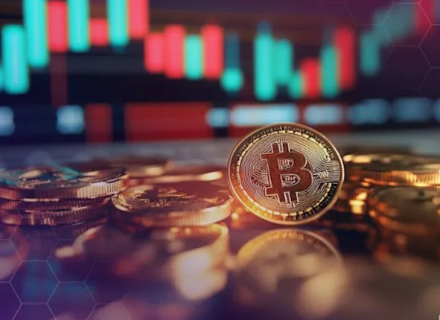Wall Street crypto privacy is advancing as institutional demand drives practical, compliant on-chain privacy; Etherealize’s ZK-based infrastructure and $40M funding aim to enable private, auditable trading and settlement on Ethereum while preserving regulatory compliance.
-
Institutional demand makes privacy a requirement for mainstream on-chain markets.
-
Zero-knowledge proofs (ZK proofs) enable verifiable transactions without revealing sensitive details.
-
Etherealize closed a $40 million funding round to build ZK-powered trading and settlement infrastructure.
Wall Street crypto privacy gains momentum as Etherealize builds ZK-based infrastructure — read how institutions will drive compliant on-chain privacy. Learn more from COINOTAG.
What is Wall Street’s role in advancing crypto privacy?
Wall Street crypto privacy is accelerating because institutions demand privacy-preserving infrastructure to trade and settle tokenized assets on public blockchains. Institutional requirements for confidentiality and auditability push developers to adopt tools like zero-knowledge proofs that hide sensitive details while preserving verification.
How will Etherealize’s ZK infrastructure change institutional trading?
Etherealize, led by co-founder and President Danny Ryan, closed a $40 million funding round to build trading and settlement layers that use zero-knowledge proofs. The approach enables institutions to prove compliance and correctness without exposing order books, treasury details, or strategy to public scrutiny.
Ryan told COINOTAG that “the market does not, and cannot, function fully in the clear.” He argues institutional adoption will normalize practical privacy tools for broader users. This development aims to balance operational secrecy with on-chain efficiency and regulatory auditability.
Why do institutions need privacy on public blockchains?
Institutions handle sensitive treasury operations, counterparty agreements, and trading strategies that, if public, could harm competitive positions. On public blockchains, transaction transparency creates traceable evidence of activity. Privacy tools let firms transact on-chain while preserving commercially sensitive information.
What are zero-knowledge proofs and why do they matter?
A ZK proof is a cryptographic method to verify a statement without revealing the underlying data. Projects like Zcash historically used ZK techniques for privacy. In Ethereum’s ecosystem, ZK proofs also help scale and enable selectively private applications for institutional workflows.
Frequently Asked Questions
Will institutional privacy undermine regulatory oversight?
Not necessarily. The models Etherealize and others propose aim for compliant privacy: verifiable proofs that satisfy audits and regulators without exposing merchant-sensitive data. The goal is selective disclosure for oversight, not blanket secrecy.
How does recent enforcement affect privacy development?
U.S. government actions against developers associated with coin-mixing services such as Tornado Cash and Samourai Wallet have heightened scrutiny. That enforcement underscores the need for privacy solutions that incorporate compliance and accountability features.
Key Takeaways
- Institutional demand is pivotal: Wall Street’s need for confidentiality will accelerate practical privacy tooling.
- ZK proofs are central: Zero-knowledge proofs enable verifiable privacy for trading and settlement.
- Compliant design matters: Privacy solutions must balance operational secrecy with auditability to satisfy regulators.
How to implement institutional-friendly privacy on-chain (HowTo)
- Define compliance requirements: map reporting and audit needs.
- Choose privacy primitives: evaluate ZK proofs and selective shielding approaches.
- Design access controls: enable selective disclosure for auditors and counterparties.
- Test and audit: run third-party security and compliance reviews.
Conclusion
Institutional adoption is likely to make Wall Street crypto privacy a practical reality on Ethereum and beyond. Etherealize’s $40 million-backed push toward ZK-enabled trading and settlement exemplifies how firms can achieve privacy that is auditable and compliant. Expect institutional demands to accelerate tools that benefit both large firms and everyday users seeking better on-chain privacy.


